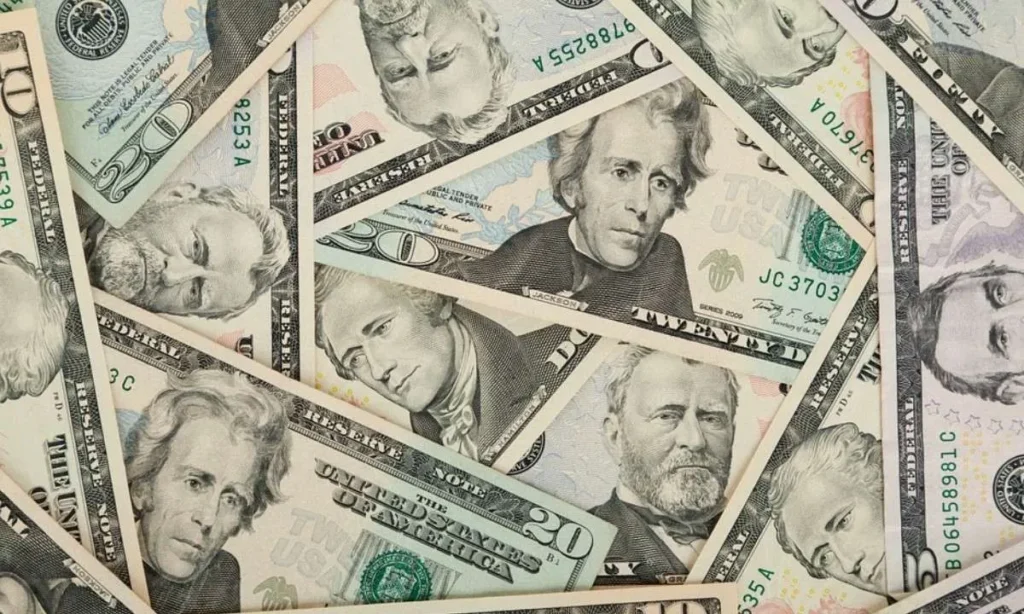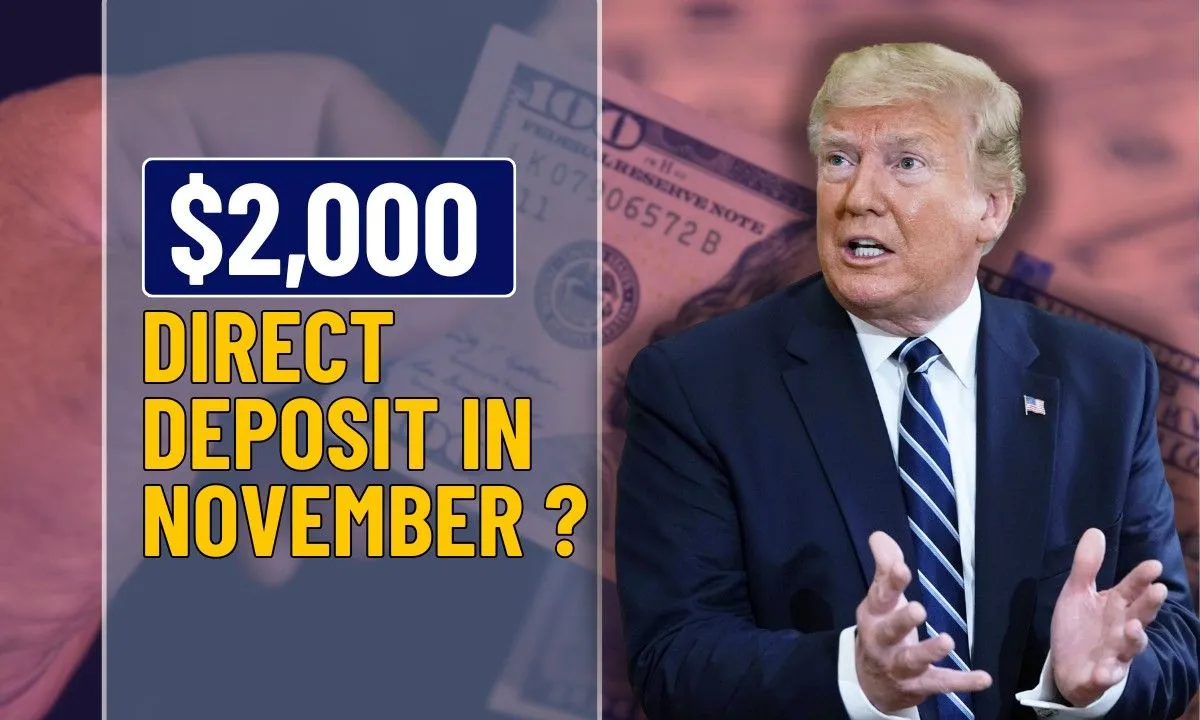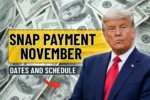A viral claim has swept across social media this month, insisting that U.S. citizens are about to receive a $2,000 direct deposit from the government in November 2025. Posts and videos across Facebook, TikTok, and YouTube have gathered millions of views, suggesting this is a new “federal inflation relief payment” backed by the IRS and U.S. Treasury. But after verifying with official federal sources, the reality is very different there is no such payment, no program, and no law authorizing this $2,000 deposit.
The Internal Revenue Service (IRS), U.S. Department of the Treasury, and Congress.gov have all confirmed there’s no record of any $2,000 stimulus or direct deposit scheduled for 2025. These claims are, in fact, false and misleading. Many Americans have fallen for these stories because they look familiar the posts often reuse images and formats from the 2020–2021 pandemic stimulus programs, simply updating the dates to make it appear legitimate.
Official Sources Confirm No $2,000 Relief Plan Exists
The IRS has been quick to clarify the situation. In its most recent public statement, the agency said clearly: “There are no new Economic Impact Payments planned or approved for 2025.” That statement alone debunks the entire rumor. There’s no congressional budget for such payments, no approved bill, and no executive order related to a nationwide $2,000 deposit. The Treasury Department also has not issued any financial guidance, and there’s nothing listed under new relief measures on Congress.gov.
Federal officials have warned Americans to be cautious of scams that appear to confirm the rumor. Fraudsters are now creating fake websites, posing as IRS portals, and sending phishing emails that claim to “verify your eligibility” for the $2,000 payment. These messages are designed to steal your Social Security number, banking details, and personal identification information. The FTC (Federal Trade Commission) has already flagged several such scams in recent weeks.
How the $2,000 Payment Rumor Took Off

The reason this rumor caught fire is because it cleverly blends real programs with false claims. People are understandably hopeful for financial support given the ongoing rise in living costs. Inflation has left millions struggling with higher rent, food, and healthcare bills. But the posts spreading online mix fragments of truth with lies.
Much of the confusion stems from state-run initiatives. For instance, Alaska, Minnesota, and Colorado have released their own small rebate programs this year to help residents manage local inflation pressures. Scammers often twist these local rebates into false claims about a “federal deposit.” Another source of confusion comes from the Social Security Administration’s (SSA) recent announcement about the 2026 Cost-of-Living Adjustment (COLA), which will increase benefits starting in January 2026. Some social media accounts falsely describe this as a “$2,000 bonus payment.” And finally, edited screenshots from old pandemic stimulus programs are being circulated with new dates to make them appear genuine.
Programs That Are Actually Real
To set the record straight, here’s what’s really happening right now programs that are legitimate, verified, and active:
| Program Name | Managed By | What It Actually Is |
|---|---|---|
| Social Security COLA 2026 | Social Security Administration (SSA) | An increase in monthly benefits starting January 2026, based on inflation. |
| State Rebate Programs | Individual State Governments | Local rebate or cost-of-living aid for residents, not federal payments. |
| Earned Income & Child Tax Credits | Internal Revenue Service (IRS) | Annual credits applied during tax filing, not direct deposits in November. |
| $2,000 Federal Direct Deposit | – | False – No legislation, no budget, and no federal approval. |
Protect Yourself from the $2,000 Deposit Scam
Scammers are taking advantage of this rumor to trick citizens into giving up personal details. Many fake websites mimic official pages and include words like “IRS Relief Portal” or “Federal Stimulus 2025.” These pages are designed to collect sensitive data for fraudulent use. Always remember that the IRS never emails, texts, or calls you to confirm banking or personal information. If you ever come across a suspicious message, the best way to protect yourself is to report it immediately. You can file a complaint with the Federal Trade Commission through reportfraud.ftc.gov or forward the suspicious email to phishing@irs.gov. Real government links will always end with “.gov.” If it ends in “.com,” “.net,” or “.relief,” it’s a scam.
Economic Context, Why No New Federal Payment Exists
While it’s true that inflation continues to pressure American households with essentials like groceries, rent, and medical costs up nearly 17% compared to pre-pandemic levels the U.S. government has not approved any new nationwide relief programs in 2025. For a new stimulus to exist, Congress would need to pass a bill, fund it in the federal budget, and it would be publicly announced on IRS.gov and Treasury.gov.
The last official direct payments were distributed under the American Rescue Plan Act of 2021, and since then, no similar nationwide relief measures have been approved. Any genuine future payment will be widely covered by mainstream media and verified through official federal websites the same day it is announced.
FAQs
- Is the $2,000 November 2025 direct deposit real?
No. The IRS, Treasury, and Congress have confirmed there is no such program or budgeted payment. - Where did the rumor come from?
The rumor spread through social media using edited images from past stimulus programs and confusion surrounding state rebate programs. - Can Social Security recipients expect a $2,000 bonus?
No. However, beneficiaries will receive a Cost-of-Living Adjustment (COLA) increase in 2026, which adjusts monthly payments based on inflation not a lump-sum bonus. - How can I verify real government payments?
Always rely on official government websites ending with “.gov.” Be wary of links or texts promising money or asking for personal details. - What should I do if I shared personal info on a fake site?
Immediately report it to the FTC via reportfraud.ftc.gov and contact your bank to secure your account.



